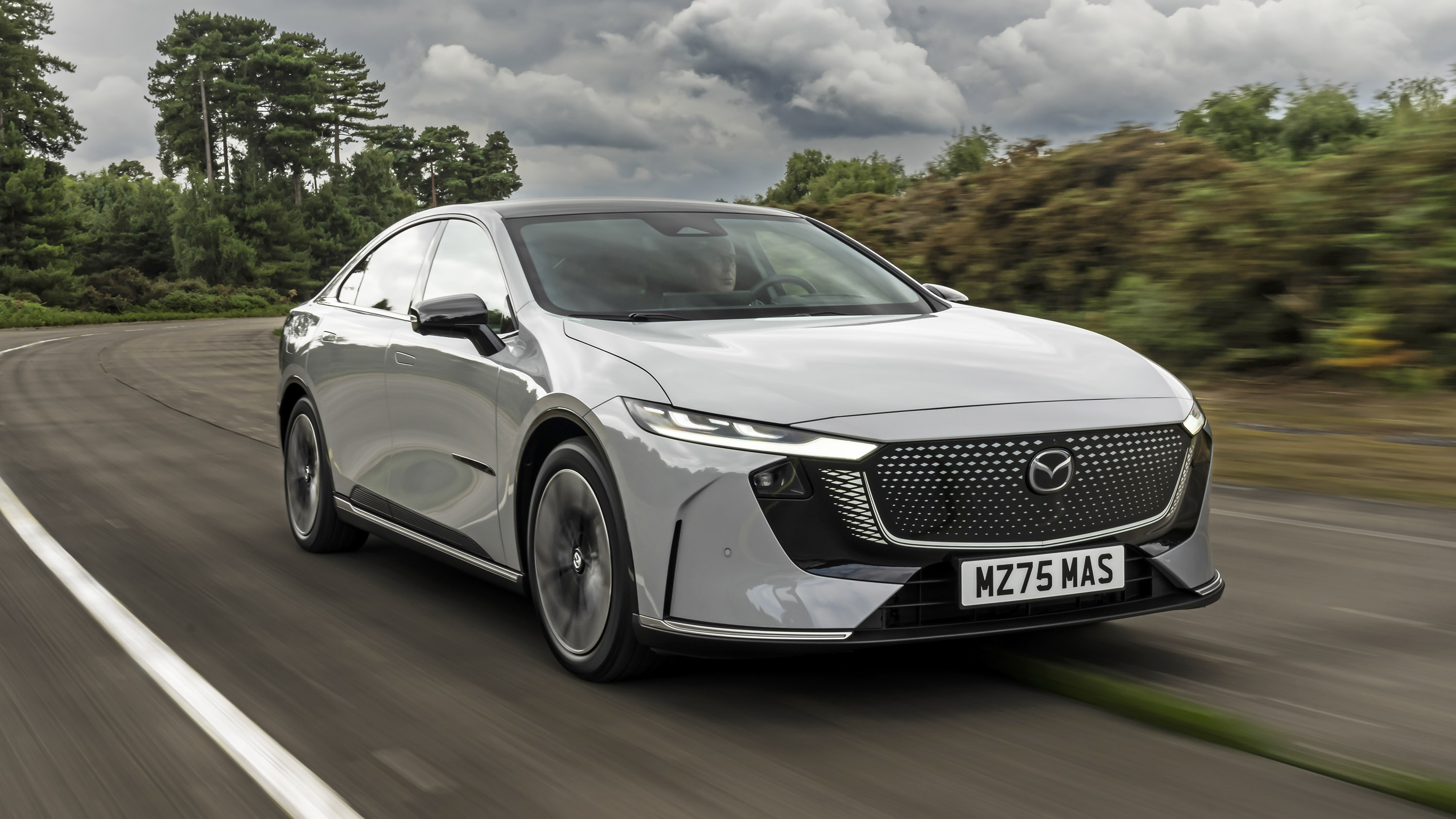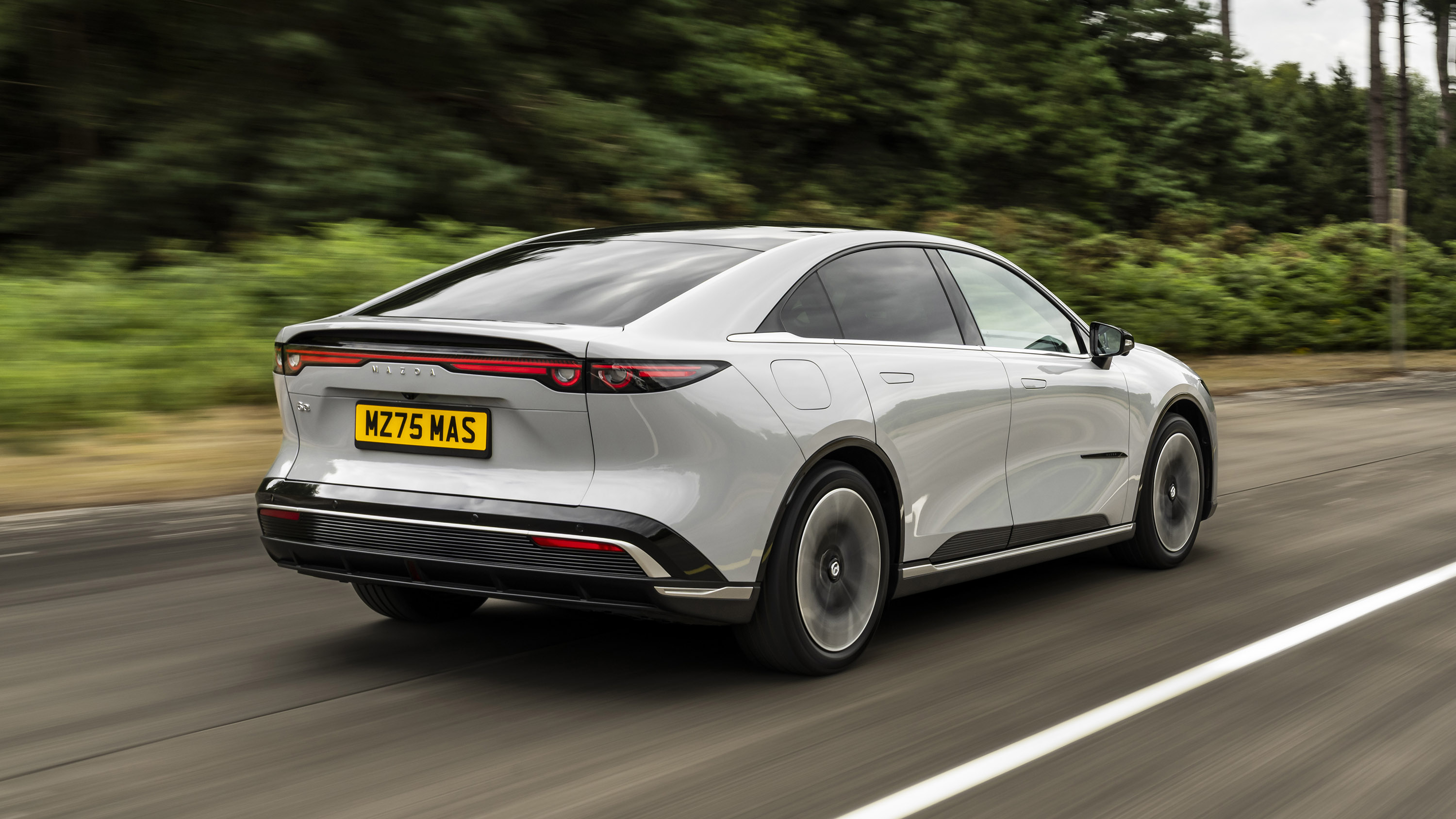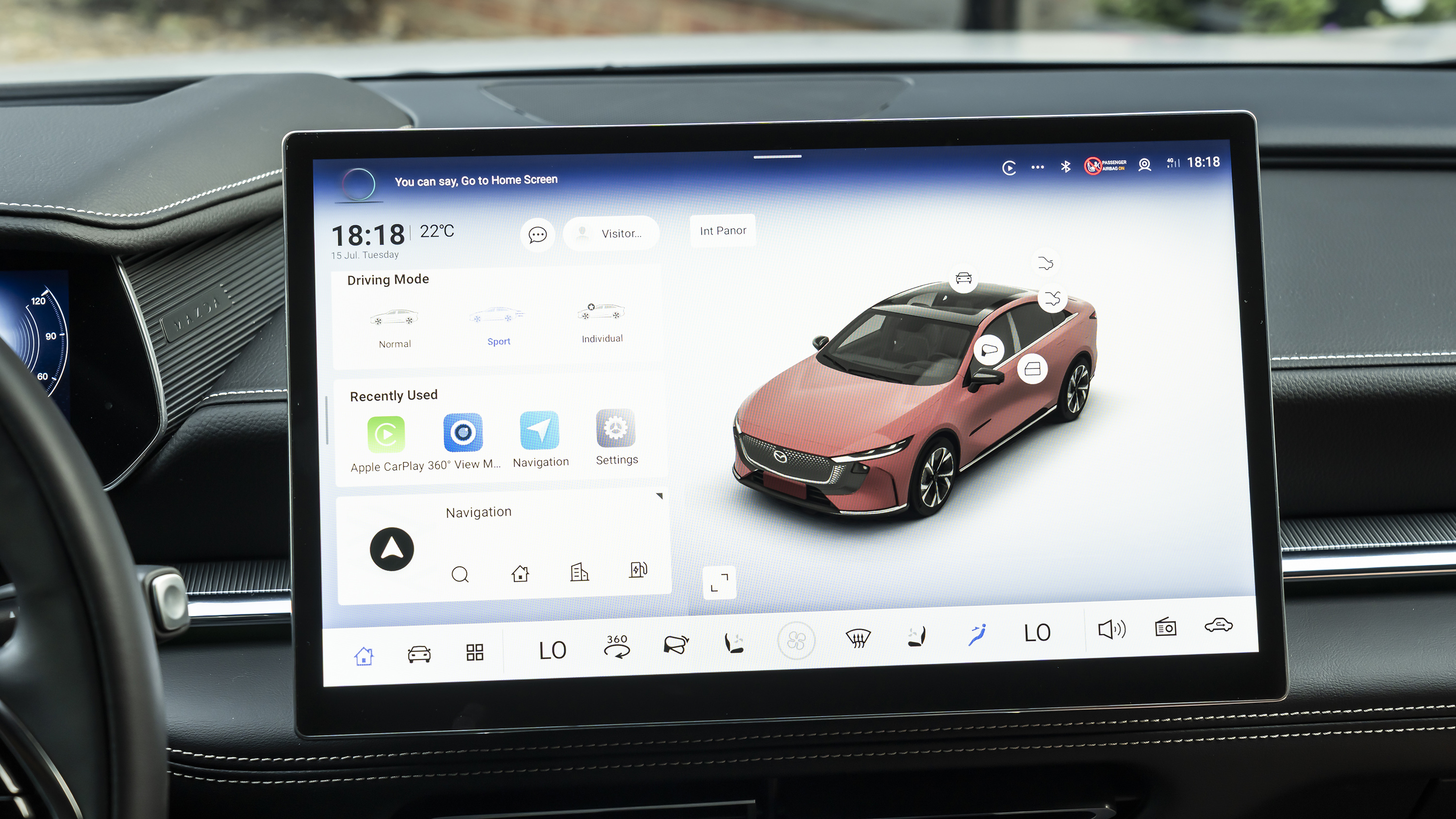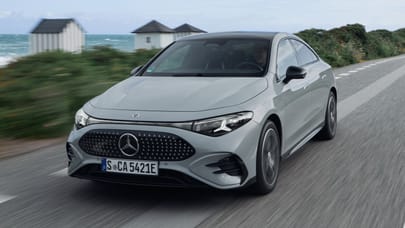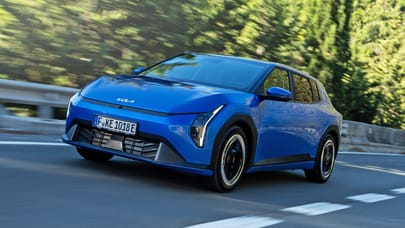
Mazda 6e review
Good stuff
Convincing makeover on the outside, decent enough dynamics beneath
Bad stuff
Lacks competitive range and charging, far too much is controlled by the touchscreen
Overview
What is it?
It’s a Mazda, just not quite as we know it. The Japanese firm has always been a satisfyingly leftfield choice on British shores, with a real enthusiast heart typically beating strongly within its mainstream cars. To claim they drive like MX-5s would be OTT, especially when they were front-wheel drive, but a Mazda 3 hatch or Mazda 6 saloon have generally registered among the smartest-designed, neatest-handling cars in their class.
But it’s also fair to say that Mazda’s been caught on the hop a little by electrification, generally resembling a bemused bystander rather than an EV or hybrid pioneer. See the Mazda 2, a barely rebadged Toyota Yaris, or the extremely niche Mazda MX-30 for evidence.
Perhaps – with the fullness of another few decades of car industry development – its reticence might emerge as a sage move. For now, though, Mazda needs a quick route to getting some fully plug-in cars to market to comply with ever-stringent targets.
Long story. What’s your point?
That this is, in its baldest terms, a restyled 'n' rebadged Changan Deepal SL03 saloon, aka a Chinese EV with a new face. Coulda fooled us: how much it resembles the next evolution of the handsome Mazda 6 is to be commended, though the Changan itself looks good in a slightly generic way and clearly wasn’t a terrible place to start. Specify Mazda’s signature deep red paint with some tan leather and the makeover is almost wholly convincing.
And it’s less of a phoned-in job than you might initially fear. Changan and Mazda have worked together since the early Noughties and the 6e is already sold in China as the Mazda EZ-6 as a pure EV or range-extender hybrid. It’s the former we’re set to get in the UK, and this is a relatively early taste of it – hence the Swiss plates and left-hand-drive layout despite our first drive being on North Yorkshire lanes.
So what are my options?
Final UK line-ups are a little while off, too, but Mazda makes both standard and long-range versions utilising either 68.8 or 80kWh batteries. The former claims 300 miles and a 200kW charging speed on a DC rapid device, while the latter offers 345 miles but a poorer 90kW charging peak.
It’s also a bit less powerful. Both deploy a sole motor at the rear axle, the standard-range car claiming 254bhp and 0-62mph in 7.6secs while the rangier car offers 241bhp and 7.8secs. Close enough that you won’t mind the performance deficit, but it's the gulf in their DC charging which ought to tip many buyers in the smaller battery’s favour.
Any good, then?
This first impression is limited to the 80kWh car. And the quick answer is that it drives smoothly and satisfyingly enough to compete in its relatively small class. A Tesla Model 3, BYD Seal, Hyundai Ioniq 6 and Volkswagen ID.7 aren’t known for their earth-shattering handling and so the subtly measured approach here – not a distant cry from the old Mazda 6 – will suit buyers who presumably fit the same mould. It feels more RWD than its key rivals too, which is nice.
Causing more consternation will be its touchscreen-heavy ergonomics. We’re used to large, un-integrated displays hoovering up functionality in natively Chinese cars, but the 6e takes the biscuit with the wipers and lights ending up in there too. You can plonk them back on customisable shortcut buttons on the steering wheel (or make your peace with the move given they’ll mostly both stay in ‘auto’) but they feel emblematic of a wider loss of character inside.
Mazdas typically have unique cabins, ones which keen drivers appreciate the control weights and driving positions of, regardless of the class of car. This is a Changan interior with new badges and though the materials are nice (and the ambience beneath the tinted panoramic roof actually rather pleasing) there’s a shift in mentality that betrays the 6e’s roots.
One that requires keen pricing to truly counter. UK specs will arrive closer to its mid-2026 on-sale date, but quite how buyers are meant to negotiate two different battery offers – with near identical power and performance yet mismatched range and charging abilities – we don’t know. But if it can sneak under £40k, it might just steal focus from a Model 3 while also sitting comfortably below the BYD, Hyundai and VW, looking rather handsome as it does so.
What's the verdict?
The Mazda 6e is a curious one. It looks good, does 300 miles on a charge (hypothetically) and packs all the screens and tech many electric car buyers want. But it’s not the car Mazda normally offers within any given class, despite the fact it drives quite neatly and offers a refined and laidback gait once you’ve extinguished its most annoying assists.
Character and charm feel as pared back as physical switchgear on the inside, where its impression of anything other than a restyled (though nicely trimmed) Chinese saloon begins to falter. Adjust to its ergonomic quirks, make your peace with the fact it’s no elongated MX-5 with a battery shoved beneath its floor, and it might just feel like a more stylish take on an EV saloon than its slim selection of rivals. But it’ll need strong UK pricing to feel truly competitive.
The Rivals
Trending this week
- Fail of the Century
Fail of the Century: 42 of the worst cars from 2000 to now
- Long Term Review
Learning to slide a motorbike is terrifying and addictive




